We can’t choose family, but we can choose whether we want to talk to or spend time with them once we’re adults. And a part of Americans chooses to go no contact with their siblings: 24% of adults in the U.S. say they are estranged from at least one sibling, according to a recent YouGov poll.
This woman started considering cutting contact with her sister over a particularly nasty Thanksgiving weekend. After the sister threw multiple tantrums, the pregnant woman had enough and decided to cut her out of her new family’s life. But, after family members started calling, she wondered: was she being the jerk in this situation?
Two sisters got into a dramatic fight during Thanksgiving weekend with their extended family

Image credits: AirImages / Envato (not the actual photo)
By the end of it, one sister decided to cut the other out of her life for good
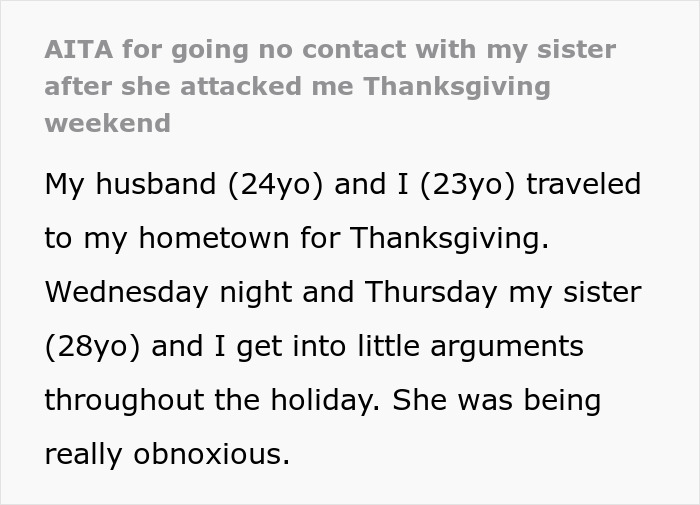


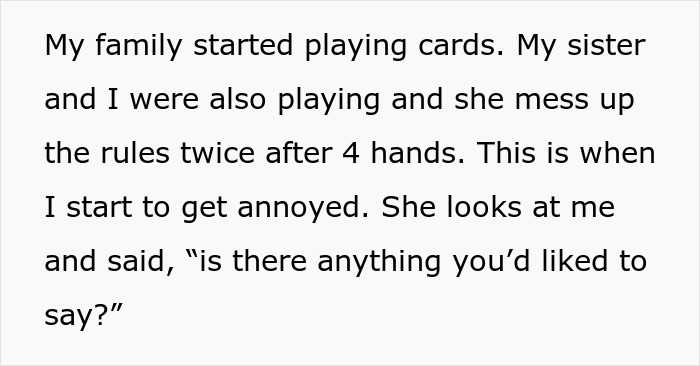

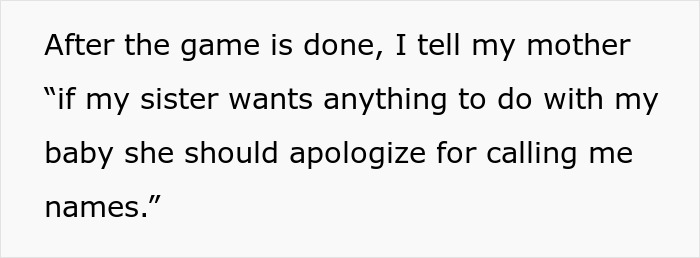

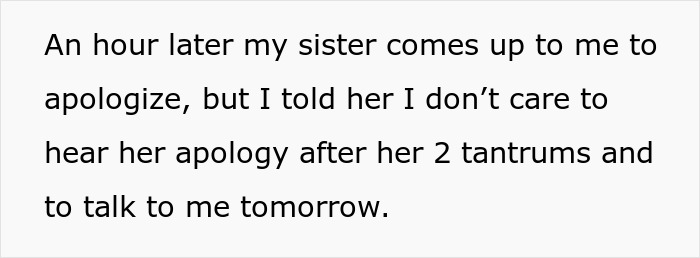

Image credits: carlesmiro / Envato (not the actual photo)




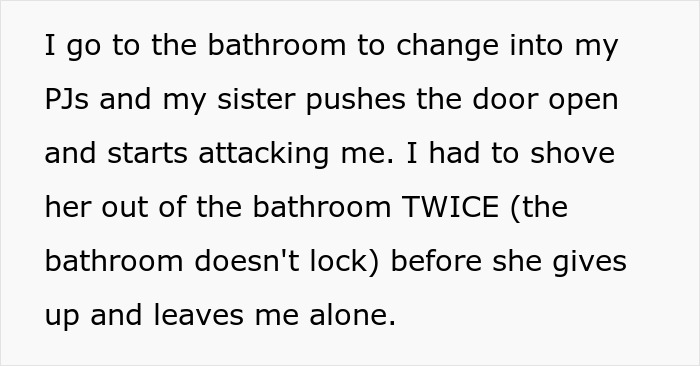
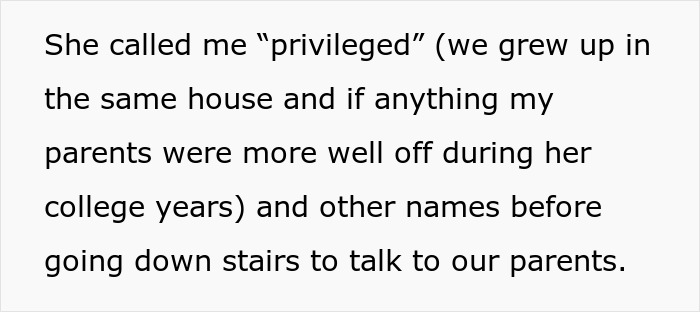



Image credits: drazenphoto / Envato (not the actual photo)

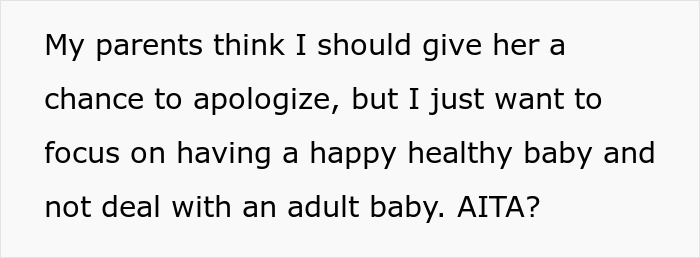
Image credits: BrilliantMagazine826
Adult siblings become estranged for myriads of reasons, from jealousy to parental favoritism

Image credits: Getty Images / Unsplash (not the actual photo)
When we’re children and teenagers, we might throw around phrases like “I hate my brother/sister!” often. But when we’re adults, these words carry much more weight. And once we grow up, we might not see the value in maintaining a relationship that only brings us anxiety, hurt, and headaches, even if it is with a sibling.
When speaking about sibling alienation with The New York Times, professor of sociology at Ohio State University Rin Reczek, who studies familial estrangement, said that the reasons for going low or no contact may vary. Some of them may include:
But clinical psychologist Laurie Kramer, PhD, explains that many sibling relationships go south because of perceived favoritism. Whether it’s from parents, other members of the family, or just that one sibling seemed to have more luck in the world. She lists some more possible causes of sibling estrangement:
People do not feel the same kind of pressure to reconnect or keep a good relationship with siblings as with parents

Image credits: Getty Images / Unsplash (not the actual photo)
Deciding to go no contact may seem easy, but such a decision is never made lightly. Some people try to stay on good terms with their siblings even after years of toxic behavior. So, how do people know and decide when enough is finally enough?
Some experts say that it is easier to cut contact with a sibling than with parents. That’s why parental estrangement is less common than sibling estrangement. Parents are much more likely to reach out to estranged children because of their role as a parent and shame that they have failed.
“Siblings don’t have the same kind of role violation that can produce shame that can serve as a motivator or as an impetus towards repair,” psychologist and author of “Rules of Estrangement: Why Adult Children Cut Ties and How to Heal the Conflict,” Joshua Coleman, told CNN.
But there is a caveat: sometimes the relationship might not be worth repairing. According to Coleman, an individual should seek to reconcile with a sibling if:
When a sibling doesn’t show empathy or willingness to repair the relationship, it might not be worth trying. Although Coleman tries to advocate for going no contact as little as possible, he admits that sometimes there is no other way.
He advises individuals to ask themselves: “Are you too sensitive to everyone? Are you constantly ghosting people in every aspect of your life? Are you accusing everybody of gaslighting you if they don’t agree with your perception of events? Are you just cutting out one more person because you can’t tolerate conflict?”
Coleman recommends taking a break from communication first. After both parties have cooled off, they might start seeing things more clearly. If conflicts persist, cutting ties may be the only option.
“I just remember she was all over me, and I had to push her out of the bathroom twice,” the woman described the incident
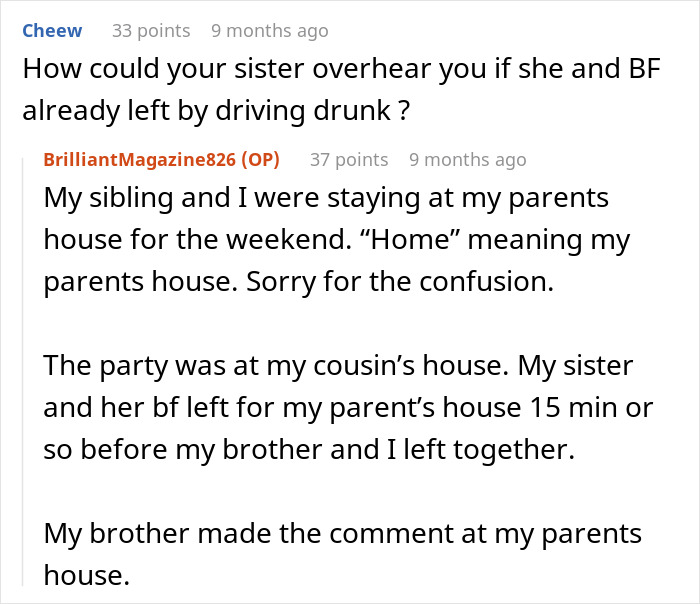
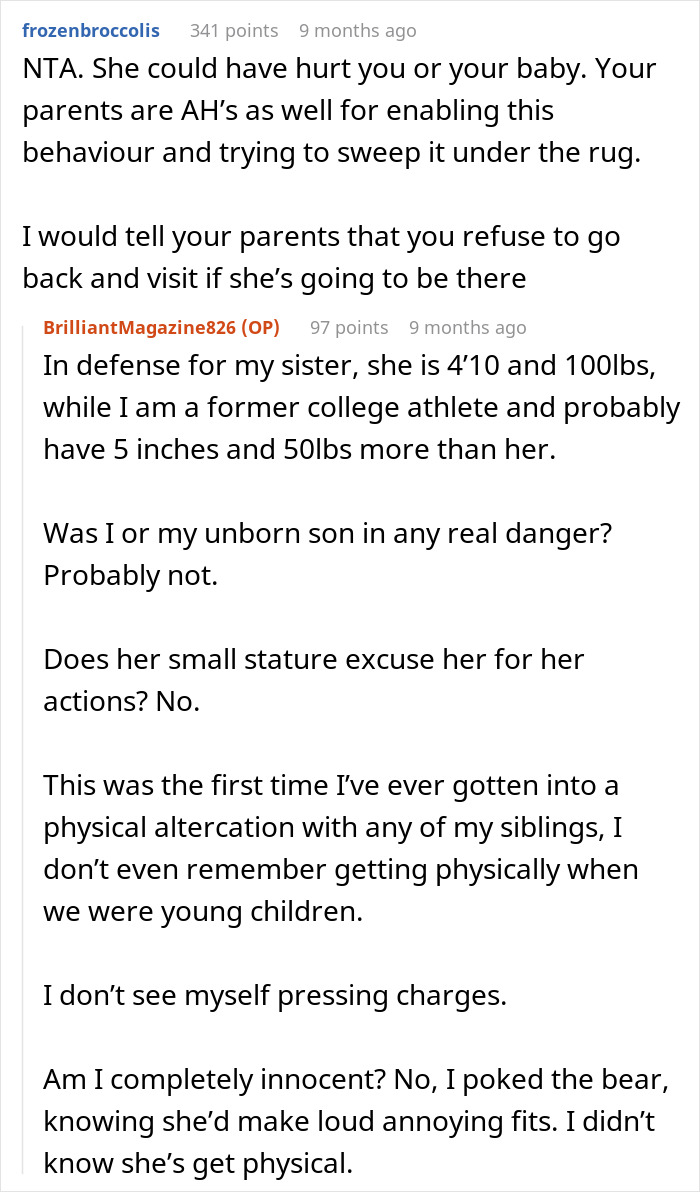
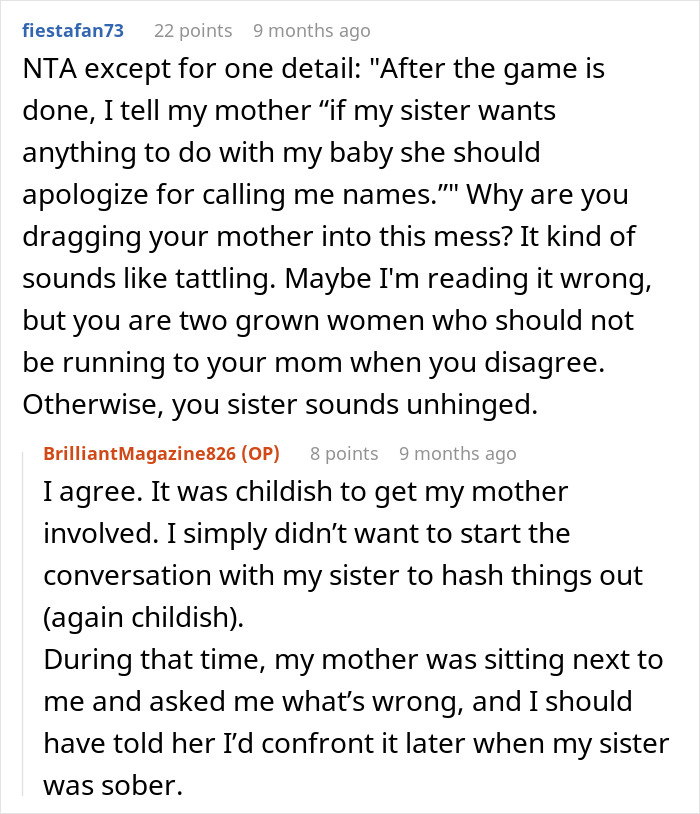

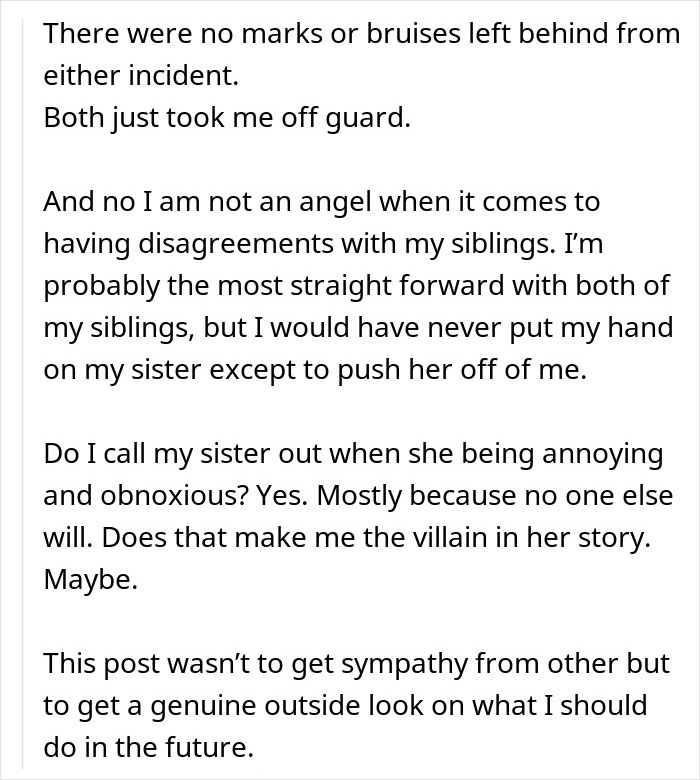

Some people urged the woman to cut contact: “She was looking for a reason to attack you and will continue to do so”

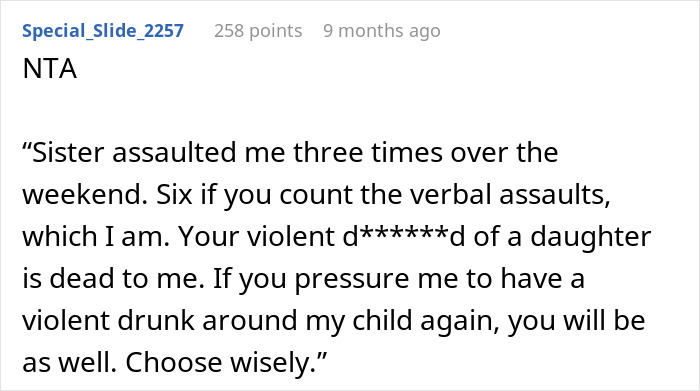








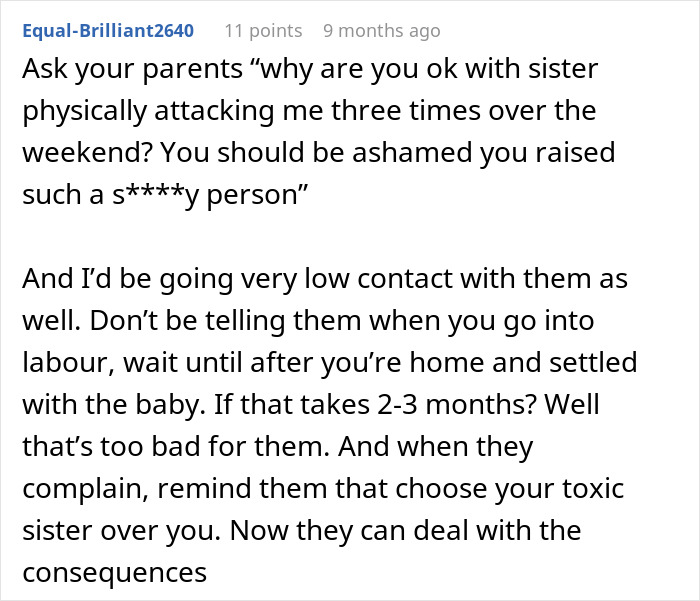

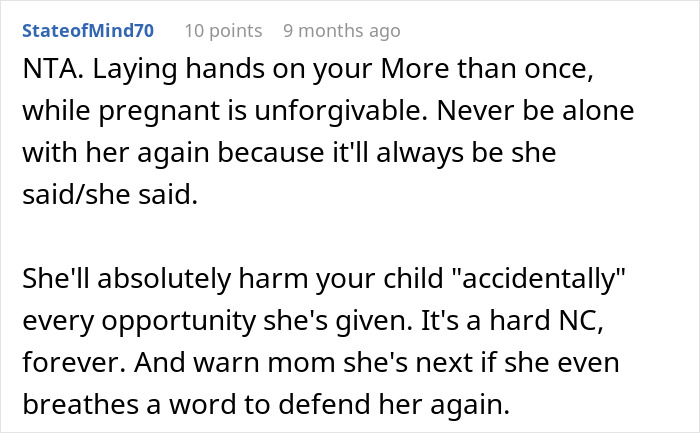
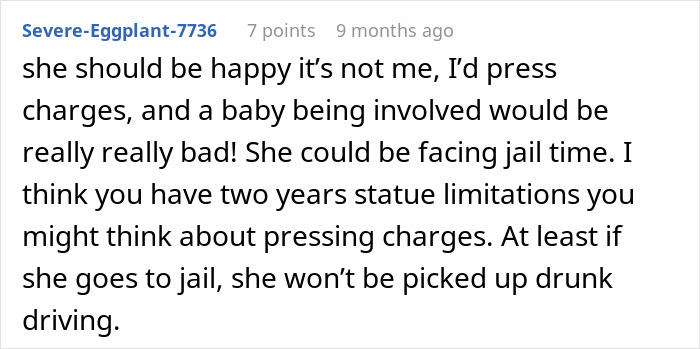


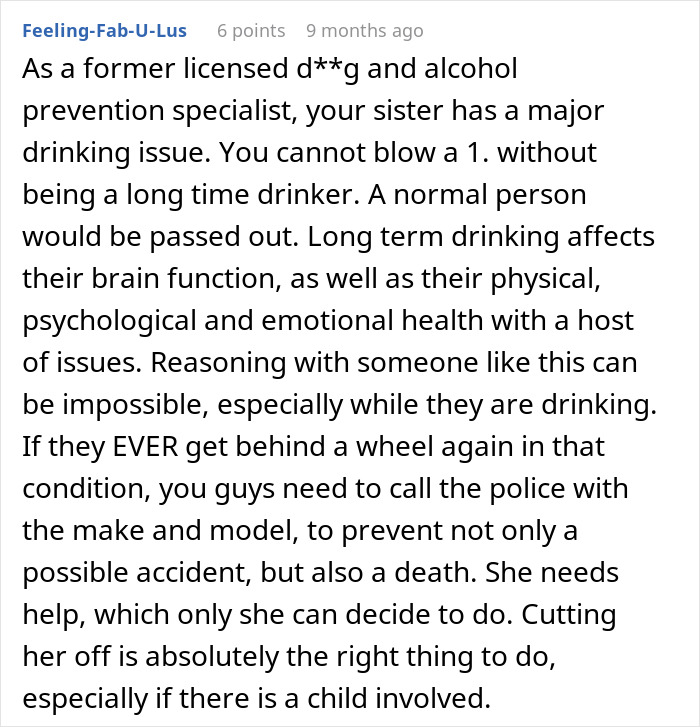

However, others thought both women were acting immature: “Get some counseling”




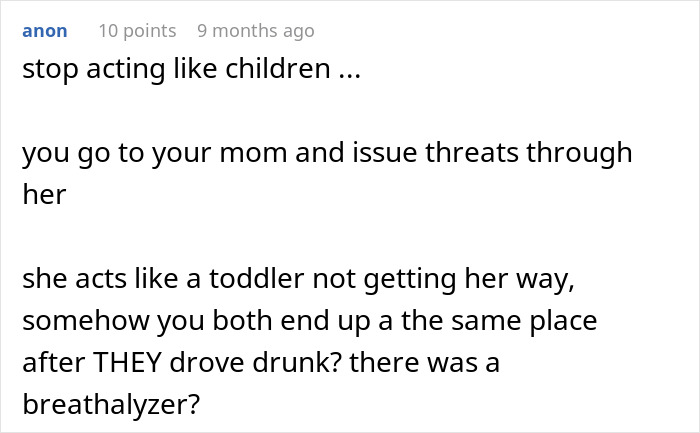

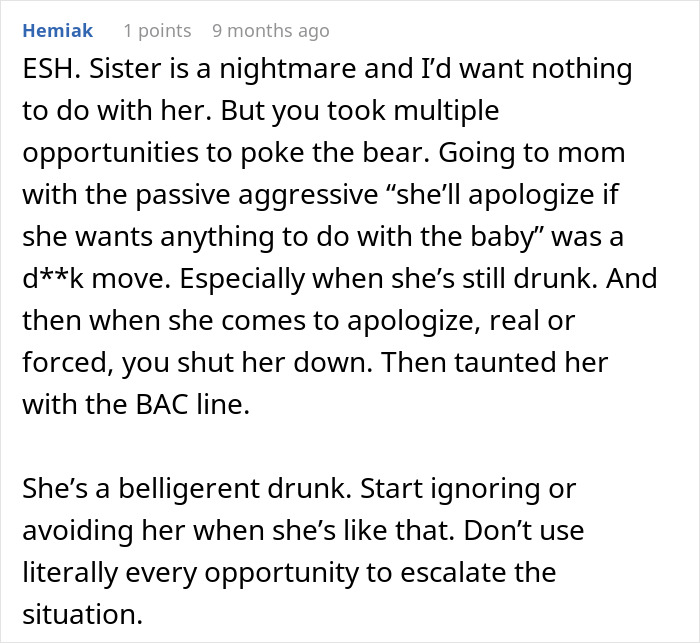

 Follow Us
Follow Us





